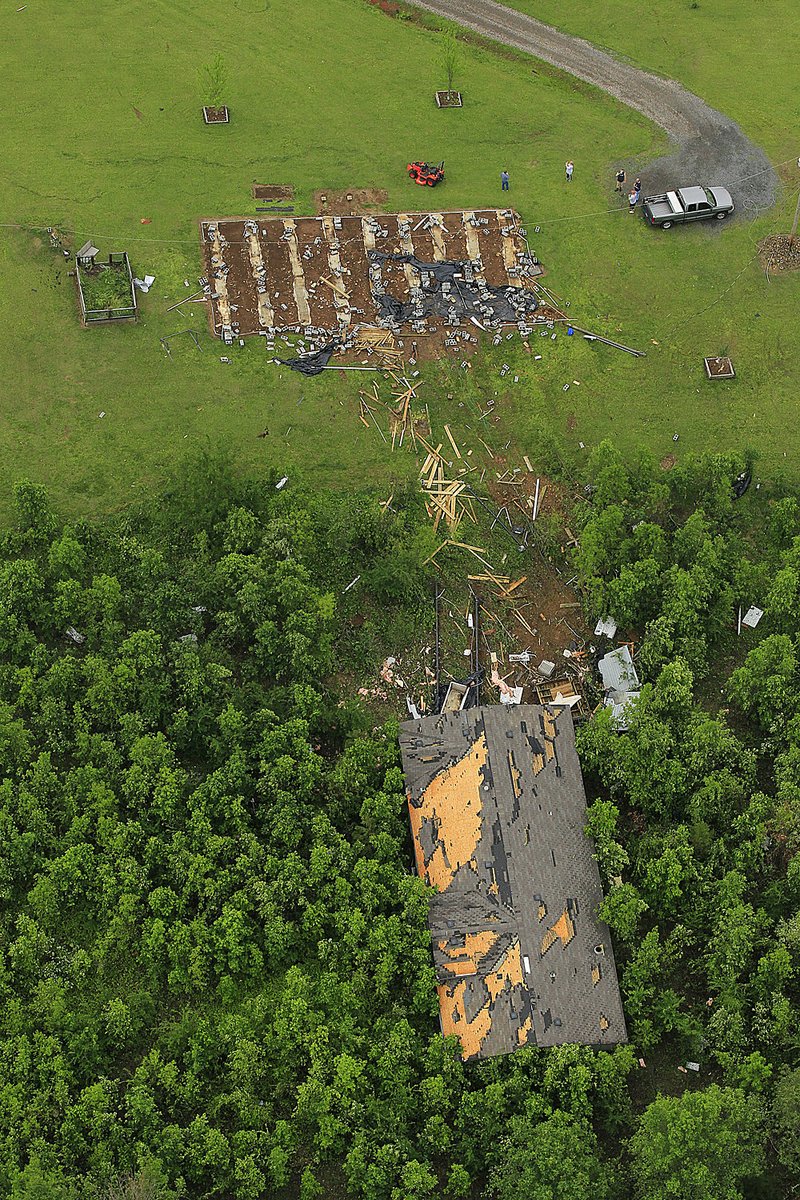LITTLE ROCK — Severe weather, despite the efforts of local media and public-safety officials, can hit without warning.
And apparently, so can the warnings, according to KARK-TV’s station manager, Rick Rogala.
http://www.arkansas…">Complete weather coverage
For many Arkansans huddled around the television Monday night, the newest Doppler radar images or tornado sightings would be wiped clear by a series of squawks and an automated voice telling them the newest weather-related warnings and watches announced by the National Weather Service.
The problem is, much of that information was old or limited and came at the expense of the newest developments.
“When they’re doing that, they cut out information that people need,” Rogala said. “That’s Comcast [cable company] doing that; they don’t have to, but they do.”
The emergency announcements, coming straight from the National Weather Service, are broadcast through various frequencies to radio and television channels in what constitutes the Emergency Alert System.
According to Comcast spokesman Mike Wilson, the repeated interruptions of all the company’s channels, not just local broadcasts carried by Comcast, are there for the benefit of all of their subscribers in Pulaski and Saline counties.
“[The alerts] go across every channel we have,” Wilson said. “Folks who aren’t huddled and looking directly at a local broadcast ... the thinking is they need to be notified also.”
Wilson said the alerts, which are automatically fed into the cable companies’ feed once they are triggered by the National Weather Service, can even cut into On Demand viewing or a DVR recording, heightening awareness of any kind of dangerous weather.
“That’s the beauty of the system we have now,” Wilson said. “It doesn’t matter if you’re watching something prerecorded or a standard national cable channel like USA or ESPN ... they’ll get the notification that there’s something going on.”
Broadcast stations, such as KARK TV, are required by the Federal Communications Commission to maintain equipment that can receiveand rebroadcast Emergency Alert System (EAS) notices, too, according to National Weather Service liaison John Robinson.
They are also required to test their equipment periodically. But they are not required to run any warning or notice, unless it comes directly from the president of the United States, Robinson said.
“Many radio and TV stations will have EAS [alerts] broadcast directly, but how they handle that broadcast or the warning is up to that station,” Robinson said. “No broadcast station of any kind is required to put weather warnings over the air.”
Marc Lumpkin, a spokesman with Dish Network, said its subscribers, like antenna-TV viewers, see only what the local news station is broadcasting. They don’t blast their channels with emergency alerts.
“Whatever they’re showing, that’s what you’ll see on your TV,” Lumpkin said.
Though they’re not required to, Rogala said his station does broadcast the notices, but usually less obtrusively through text crawling across the bottom of the screen.
It can pose a problem, Rogala said, for viewers relying on the on-camera meteorologists for news that can change within seconds.
Rogala said he’s seen cable providers in other markets exclude local broadcast stations when they cut into programming with weather-related alerts. But he doesn’t know why Comcast’s announcements pre-empt his own meteorologists’ work.
“I’ve seen it ... I know the technology exists,” Rogala said.
Wilson said he wasn’t sure about that technology, or at least, he didn’t think the Comcast providers in central Arkansas were outfitted with it.
“We’ve got folks looking to see if in fact it’s possible to carve out the [local] broadcasters with the piece of equipment we have,” Wilson said. “Will it or not ... we’ll certainly look into that to see if that’s possible.”
Front Section, Pages 5 on 04/27/2011



